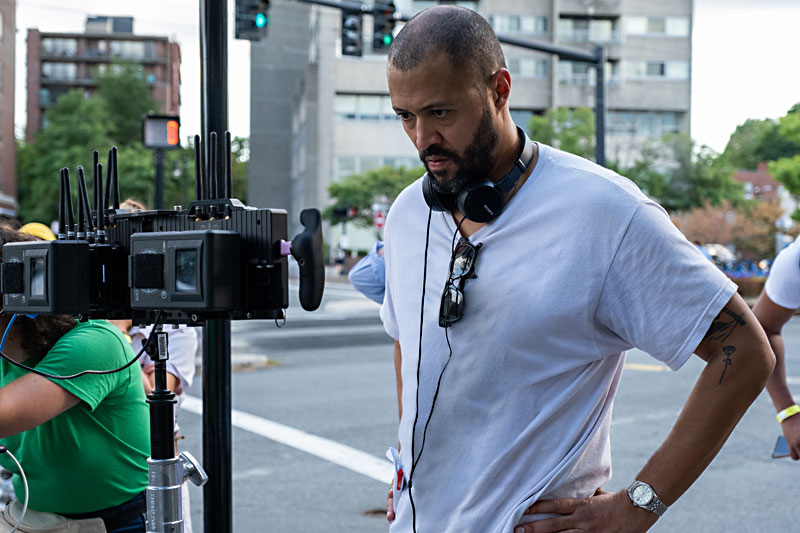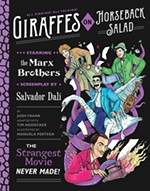American Fiction, American Reality
Cord Jefferson is putting the Black middle class back on the screen
Reviewed by Richard Whittaker, Fri., Dec. 15, 2023

Cord Jefferson has a knack for tackling social realities that don't get enough coverage. In 2013, as the West Coast editor for gawker.com, in the wake of a series of white riots and white white-collar crimes, he wrote a column in which he opined, "How long must we wait for the white community to get its act together?" That led to a memorable and hysterical appearance on All In With Chris Hayes to comment on white-on-white crime. Looking back, he said, "That is the entire reason that I got into writing for TV." The clip went viral and got him a place in the writers room for Starz basketball dramedy Survivor's Remorse, and from there to gigs on Succession, Station Eleven, and Watchmen, for which he won an Emmy.
But he penned the original article as almost a goof. "I wrote it in 45 minutes," he said, and when Hayes' staff called him with the idea of turning it into a segment for the next day's show, "I did it thinking it was going to be fun and silly, and I'd do it for five or six minutes and I'd go home." For Jefferson, the lesson is simple: "Keep making stuff. Because you truly have no idea what's going to be the thing that changes the trajectory of your career or your life."
That's also, in a more satirical way, the lesson at the heart of Jefferson's feature directorial debut, American Fiction. Jeffrey Wright plays Thelonious "Monk" Ellison, an academic and writer infuriated by the idea that Black literature means gangstas and ghettos. It's not a stretch to see him as a proxy for Percival Everett, the erudite author and Greek scholar upon whose novel, Erasure, American Fiction is based. Jefferson noted that there's one scene drawn directly from Everett's own life: "That's him walking through a bookstore once and seeing his books in African American studies, and him asking the people, 'Why is this book here? This book is nothing to do with African American studies,' and them saying, 'Well, because you're Black.'"
However, unlike Ellison, Everett never wrote a faux Iceberg Slim "memoir" titled My Pafology under the nom de plume Stagg R. Leigh – a book that, to his chagrin, goes on to be a bestseller, lapped up by white readers who think they know better than him what it means to be Black. That's something Jefferson has experienced, "and every time I've gotten that note, I've said, 'I will consider this if you call me and tell me to my face what it means to be "more Black" to you.' And everyone instantly lets it go, because they know they don't have the stones to do that."
The book and the film both speak to the disappearance from mainstream American fiction of the everyday lives of the Black middle class. The recent loss of Norman Lear highlighted the importance of The Jeffersons in that representation, but there is no modern equivalent to the Banks family in The Fresh Prince of Bel-Air or the Huxtables in The Cosby Show. Instead, Black stories are often restricted to poverty, incarceration, crime, or a disease of the week on a medical drama. "It's frustrating as a viewer, it's frustrating as a creator, and more than that it's painful, because the suggestion is that the most interesting thing about you is your ability to withstand pain."
Yet for Jefferson, the greatest compliments he has received are from other writers for how well his script reflects the ridiculous grind of life behind the keyboard. "That to me is the highest praise, because I've had a few writers say, 'You've captured writing so well. You've captured the frustrations of it, of literary criticism and judges for literary awards.' There's a lot of people for whom it's pretty triggering, because they've felt those same emotions and those same frustrations."
It also sums up why there's one form of writing that Jefferson will always avoid: writing a novel. "Spending 80,000 words and years of your life, and then 10 people bought it? It's so devastating. The idea of it makes me shake. I don't think I could suffer that."
American Fiction is in cinemas now from MGM. Read our review here.










